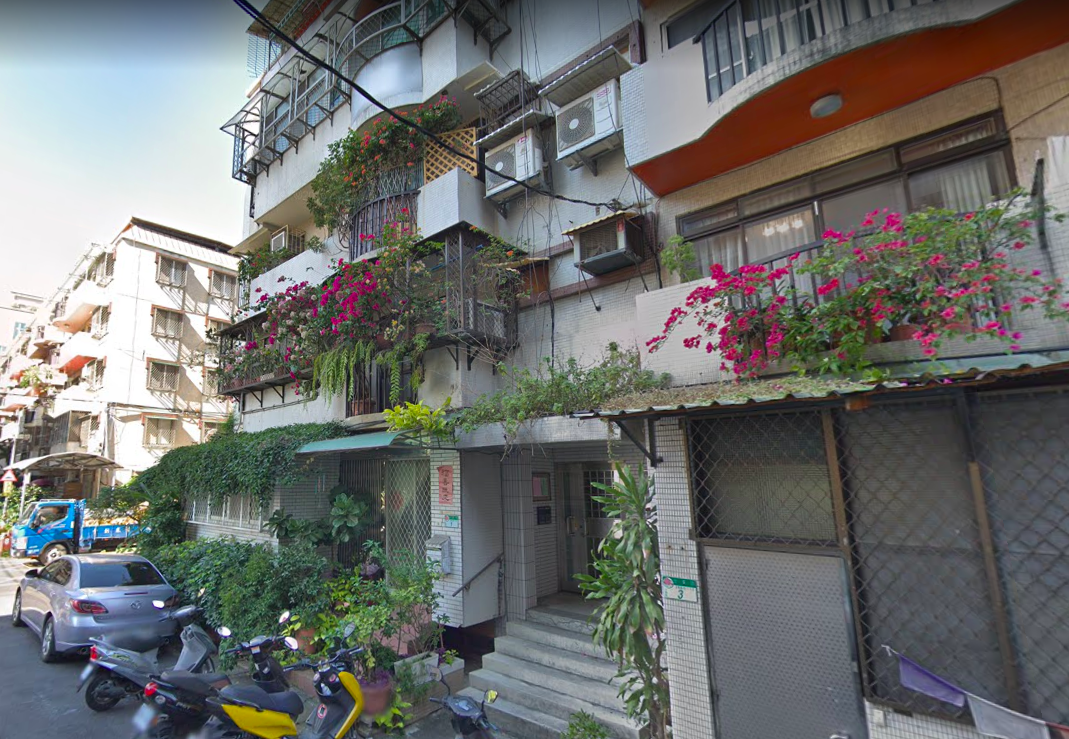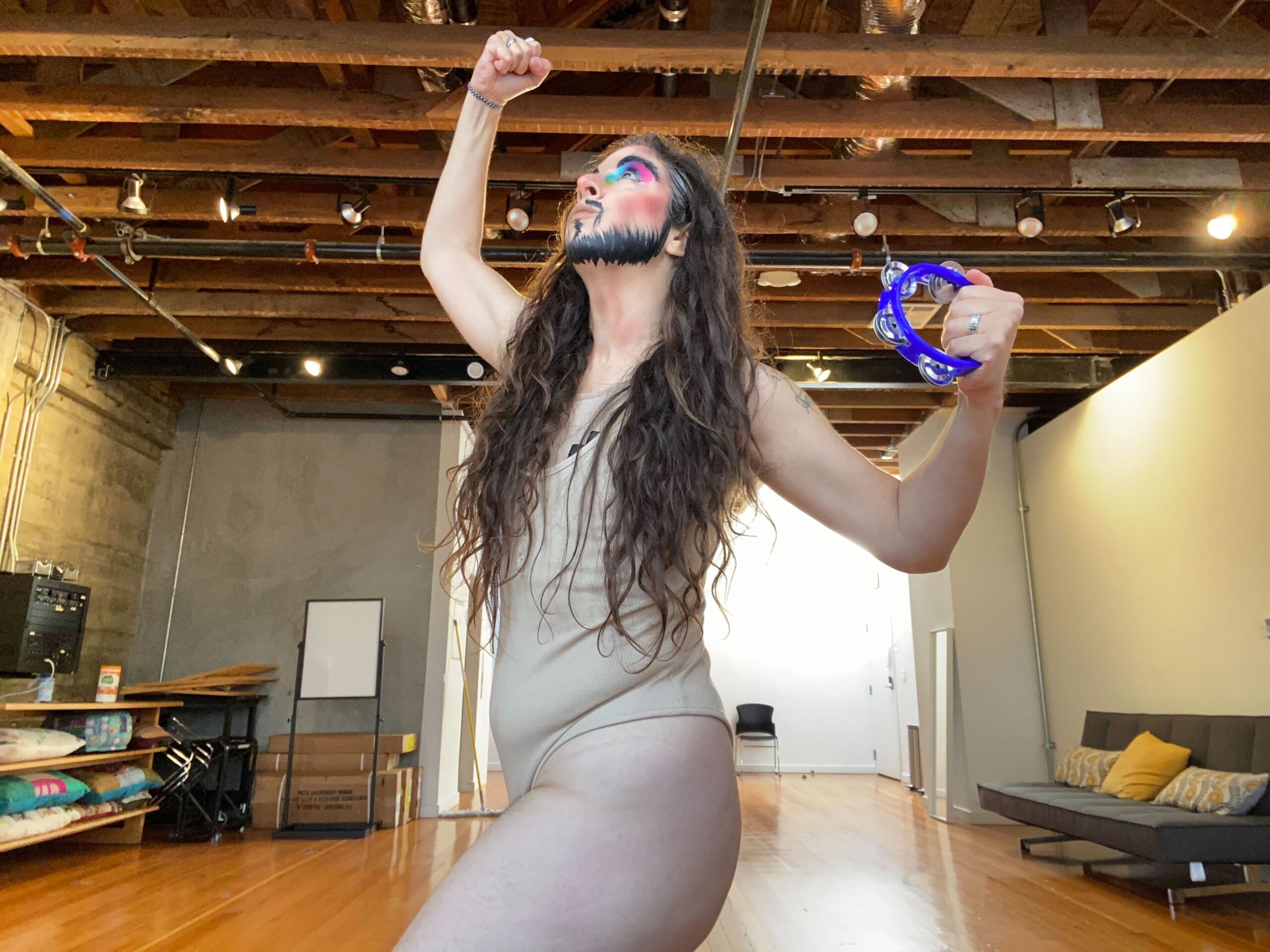BROTHERS
By Martin Schwartz
These are impressions by playwright/theater director Martin Schwartz about the Work in Progress showing we presented a month before the show opened.
A hot Sunday a few weeks ago, March 30. I walk the block and a half from where I live to CounterPULSE for a work-in-progress showing of Homo File. I am psychically prepared to listen to human speech and to watch human bodies on a black stage. I write and direct for the stage, and some part of me has always thought of Sunday as a day particularly of the theatre. It is a day of work for our tribe, of repetition and bad jokes and Diet Coke. It is as such the unholy reverse of that other Sunday, the day of worship, rest, and family meals, which different tribes allegedly savor. For us, Sunday means uncertainty and self-examination, the friable hopes and niggling misgivings we confront under fluorescent work lights. But confront them we do. Because soon, the curtain will rise and ticket-holding strangers will fold up their playbills and watch you live under lights.
Soon, that is, but not today. Today, a friendly crowd is assembled here to appreciate your work and your intentions, and to aid you, however it can, as you unite the two. Homo File’s writer/director Seth Eisen has kindly asked me if I wouldn’t reflect a bit on my experience with the show for this blog. Now, I haven’t seen the play since that Sunday and don’t know especially much about its subject, the writer, tattoo-artist, and prolific lover Samuel Steward. But I was moved and stirred to thought by the WIP showing, and perhaps you will allow me to share a few of the impressions and considerations it occasioned.
The piece begins with texts from the foundational sexologist Havelock Ellis, counterweighted by warm, ensemble-sung music and projections. Ah, I mused, there are more objects and tendencies in heaven and on earth than are dreamt of in your sexology—and all of them are accessible by fraternity and good will. And, as Homo File’s score demonstrates, an openness to the forceful, optimistic camaraderie of Weimar-style songcraft doesn’t hurt. I think of Eisenstein’s Battleship Potemkin, and its one enormous word as the mutineers unite: “BROTHERS!”
Somehow separately, I begin to acclimate to a Face. It starts with an open, honest forehead and sizeable eyes you could as easily imagine on a 
We are in the French country garden of Alice B. Toklas and our beloved Gertrude Stein, in whose rarified bosom young Sam is a favored guest. He is a young man of promise, something of a protégé of Gertrude’s: he has produced a novel, still in draft form, of course, of which she is quite fond. I’ve always rather thought of Gertrude Stein as a drag artist of sorts, and so seeing her played by a round-shouldered man, flaunting a drab tunic and a delightfully fruity literary drawl, feels like coming home. Our protagonist is shy. He suffers from a secret pride, as well as a humorously expanding array of food allergies (to the regal consternation of his hostess, Alice). A richly cultured painter (my friend and colleague Ryan Hayes, dripping vice and ennui as Sir Francis Rose) joins the party, accompanied by a shifty young Chicagoan. The Face’s mustache narrows and pinches politely, nervously, and then droops towards the ground. Hints are dropped, glances thrown and misplaced. Dinner is served.
A key. The stage is dark and a fat rope hangs straight down from the rafters. I am concerned. Sam approaches and begins to wrestle with the rope, to subject his body to gravity by means of it, to pinch his stomach and viscera hanging, and undoubtedly to abrade his flesh. When Sam engages the rope, he does so voluntarily, of his will. But as his form and limbs become entwined in the line and his body is variously suspended and swinging, this aspect of choice recedes. Sam’s entire body is implicated and in play, and now I don’t even watch for the Face. The body’s own pendulous, compromised weight, wrapped in rope, demands Sam’s continuous response and reconfiguration. If he doesn’t react, his body will contort and turn gray, and he may eventually die.
Now Sam reads from the ordered notecards on which he has noted, for posterity and private delectation, the essentials of what may be the meat of his life, his goodly and varied sexual encounters. The mustache purses and glimmers as it designates one past partner as an “exquisite sadist.” And then there is this incident, related in prose that strains against the confines of its Dewey-derived form. In a hotel in Chicago, in an empty room, after very forceful treatment indeed at the hands of a man one hesitates to call a lover, Sam is tied to a radiator and pissed on. And abandoned. The Face seems uncertain how best to comport itself while conferring this information, and so it settles on a soft amalgam of amusement and shame. Tied to a radiator and pissed on. And abandoned. I could not define abjection any more distinctly, and I know that I will never use the term again without this image. Tied to a radiator and pissed on. And abandoned. How could this happen to Sam? Is this just? Is it pleasurable? Is it a side-effect of pleasure? Is it something that simply happens occasionally in our world? I want to know, and I search the Face for an answer. But the Face, hurt and slightly sheepish, looks away. Lights.

And here he’s toted his camera to a bodybuilding gym, making himself small around the boys and grazing, sighing, on the wares on display. The Face can barely talk, it seems to me. The mustache now covers it entirely. Its blush and shyness have hardened into loneliness.
Sam’s pleasure in the gym or the tattoo parlor is quiet, self-sufficient in its longing, the necessity of its nonsatisfaction. It is almost Protestant in its poise. Tattooing a rowdy sailor’s crotch, curtly telling him to hold still or to shut up only when necessary, retreating, watching, painfully desiring, snapping pictures of young flesh in the gym. He hated being old, we read in Edward Guthmann’s note on this blog. And indeed, for a man whose primary gift to the ages is a catalogue of sex acts, aging would presumably be fearful. But for this Samuel, in this show, there is hope—in this viewer, anyway—that the desire itself is enough, that wanting it badly enough imparts a special dignity. Even, perhaps especially, when you’re too old or too shy, or tied up to a radiator and pissed on. And abandoned. This longing he expressed in his acts. And these acts he recorded in the Homo File.

I remember in this play, in a faintly lighted scene of sculptural brevity, men strutting and stamping barebreasted and vested in jeans. “Make him your slave,” they intone, with the power of prayer. And I sense, without really understanding, the hard-edged charms and sharpened danger of the dockside, the streetlight, the fenced-off, broken-glass alleyways and disused hotel rooms where Sam gets what I know he must want.
Martin Schwartz is a San Francisco-based playwright, translator, and theatre director. Recent works, produced with Dark Porch Theatre, include StormStressLenz (2013 San Francisco Fringe, Best of Fringe Award, text forthcoming in Colloquium Magazine); TUTOR: enter the exclave (EXIT Studio; Space 55, Phoenix); Comedy Ballet (The Garage, SF; EXIT Stage Left); and Cockroach (2009 San Francisco Fringe, Best of Fringe Award; 2010 WOW Festival). TUTOR: enter the exclave was chosen in the Phoenix New Times as one of Phoenix’s ten best plays of 2012. A Theatre Bay Area ATLAS Playwriting Fellow and a finalist for the TITAN Award, Martin is a Marin County native and lives exactly 1.5 blocks from Counterpulse.
Share This!
More Good Stuff
Unsettled/Soiled Group is a group of East, Southeast, and South Asian diasporic movers, makers, and settlers on Ramaytush and Chochenyo Ohlone land. Unsettled/Soiled Group is led by June Yuen Ting, one of CounterPulse's 2022 ARC Performing Diaspora artists and will debut Dwelling for Unsettling alongside VERA!'s Try, Hye!, Thursday through Saturday, December 8-10 & 15-17, 2022
VERA! (they/them) is a queer Armenian American drag king, dancer, and community activist. They are one of CounterPulse's 2022 ARC Performing Diaspora artists and will debut Try, Hye! alongside Unsettled/Soiled Group's Dwelling for Unsettling, Thursday through Saturday, December 8-10 & 15-17, 2022
Inspired by ancestral, community-centered, and spiritual relationships to land and plants, [and then we must be] by Audrey Johnson is a research and ritual project honoring Black American practices with land and plants through the modes of food, farming, rootwork, and magic. The work honors the practices that get passed down through recipe, spell, and story, as well as the memories active and activated in the body, plants, the land (soil, clay, mycelium, strata), and in spirit.







